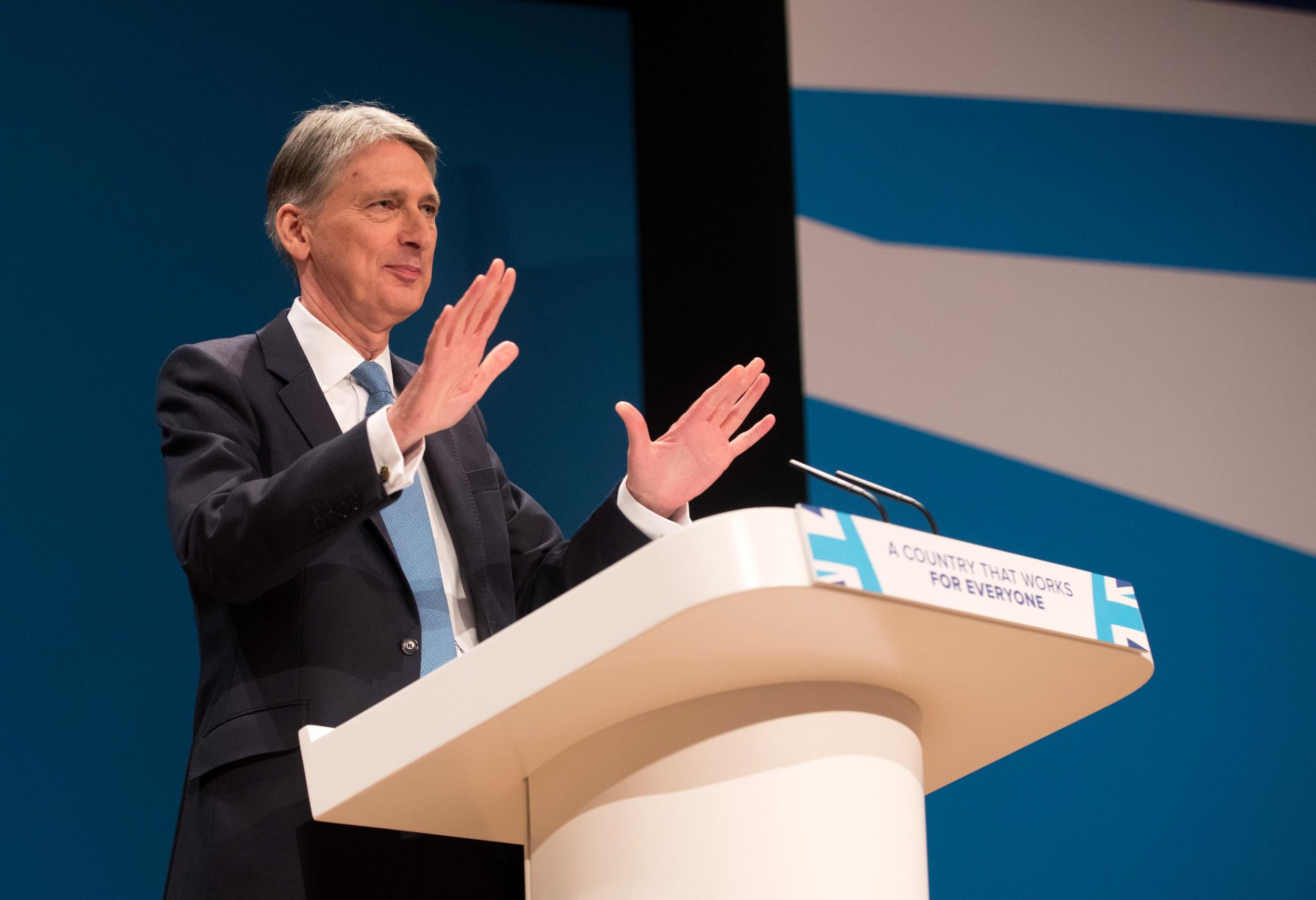Chancellor Philip Hammond slammed over misleading claims over National Infrastructure Commission 'independence'
Critics have described the announcement as a sham since executive agencies are not considered to be independent of government departments

The Government has been accused of trying to pull the wool over people’s eyes by claiming its National Infrastructure Commission will be independent, when the organisation will, in fact, be embedded in the Treasury.
Last October the former Chancellor, George Osborne announced the establishment of an “independent” National Infrastructure Commission (NIC) which he pledged would “calmly and dispassionately assess the future infrastructure needs of the country” and “hold any government’s feet to the fire if it fails to deliver”.
On Wednesday Mr Osborne’s successor, Philip Hammond, said that the NIC will become an “executive agency” and published a charter which the Treasury claimed detailed the Government’ “clear commitment to its independence”.
Separately, the City minister, Simon Kirby, wrote that the new body would "operate independently".
Yet critics have described the announcement as a sham since executive agencies are not considered to be independent of government departments.
“If you want it to be independent ‘executive agency’ is the wrong status for this body,” said Jill Rutter, a programme director at the Institute For Government think tank.
She pointed out that the Cabinet Office issued specific guidance to government departments earlier this year on how to establish and describe various “Arm’s Length Bodies” (ALBs).
The guidance says executive agencies “are part of their department” and “while they are managerially separate, they are independently accountable within their home department”.
The document adds that for such agencies “the department sets policy”.
The Office for Budget Responsibility, which is frequently held up as a model of independence by the Treasury, is not an executive agency but a “non-departmental public body” (NDPB).
“The fact that the NIC will report directly to [the Treasury], rather than being independent from it, raises the question of whether it will have the latitude to propose bold, independent schemes that lead Budget announcements,” said Mike Spicer of the British Chambers of Commerce.
The legal status of the NIC has also been downgraded.
The Queen’s Speech in May said a new Neighbourhood Planning and Infrastructure Bill would “establish the independent National Infrastructure Commission on a statutory basis”.
However, when this bill was published last month there was no mention of the NIC, prompting claims of a government U-turn from the construction industry and complaints from business bodies such as the CBI.
The announcement of executive agency status for the NIC confirms the idea has now been scrapped entirely, since these agencies (unlike NDPBs) do not have any separate legal personality.
"The Government considers that the Commission can achieve the same objectives without legislation," wrote Mr Kirby yesterday in written House of Commons statement.
The rationale for the cross-party, fully independent and legally established NIC was that it would protect key long-term projects from being derailed by the election cycle or by party politics.
But Chris Richards of the EEF manufacturing group warned that the government could now force the NIC to "shut up shop" at any point in time or simply change its remit.
He also pointed out that other executive agencies do not deliver critical reports on government policy that the Commission is supposed to, in theory, deliver.
The Government announced that the permanent commission will come into force in January 2017.
The interim chair of the NIC, appointed last year, is the former Labour minister, Lord Adonis, and the Treasury announced that Sir John Armitt, the former chair of the Olympic Delivery Authority, will become his deputy, effective immediately.
The Treasury said an “open competition” will be held to find the first permanent chair.
But Ms Rutter of the IFG said that without proper independence the Government could struggle to attract strong candidates.
“It gives exactly the wrong signals,” she said.
The Treasury declined to comment publicly on the claims that it was misleading people, but sources stressed that the NIC would still be able to make "independent recommendations".
Business news: In pictures
Show all 13Mr Hammond said in his Conservative Party conference speech earlier this month that he would introduce “careful, targeted public investment in high value infrastructure” in the 23 November Autumn Statement.
He went on to pledge that he would put the NIC “at the very heart of our plans to renew and expand Britain’s infrastructure”.
In 2010 George Osborne slashed public sector net investment spending by 40 per cent as part of his austerity drive. And despite frequently talking up the importance of infrastructure under current plans it is still projected to fall to just 1.5 per cent of GDP by 2019-20.
The Treasury said this week that the NIC will have “its own budget, freedom and autonomy.”
In his response to the announcement Lord Adonis described it as “a big step forward towards providing the commission with the independence it needs to do the work”.
The resources of the NIC are projected to be £5m a year.
Subscribe to Independent Premium to bookmark this article
Want to bookmark your favourite articles and stories to read or reference later? Start your Independent Premium subscription today.

Join our commenting forum
Join thought-provoking conversations, follow other Independent readers and see their replies